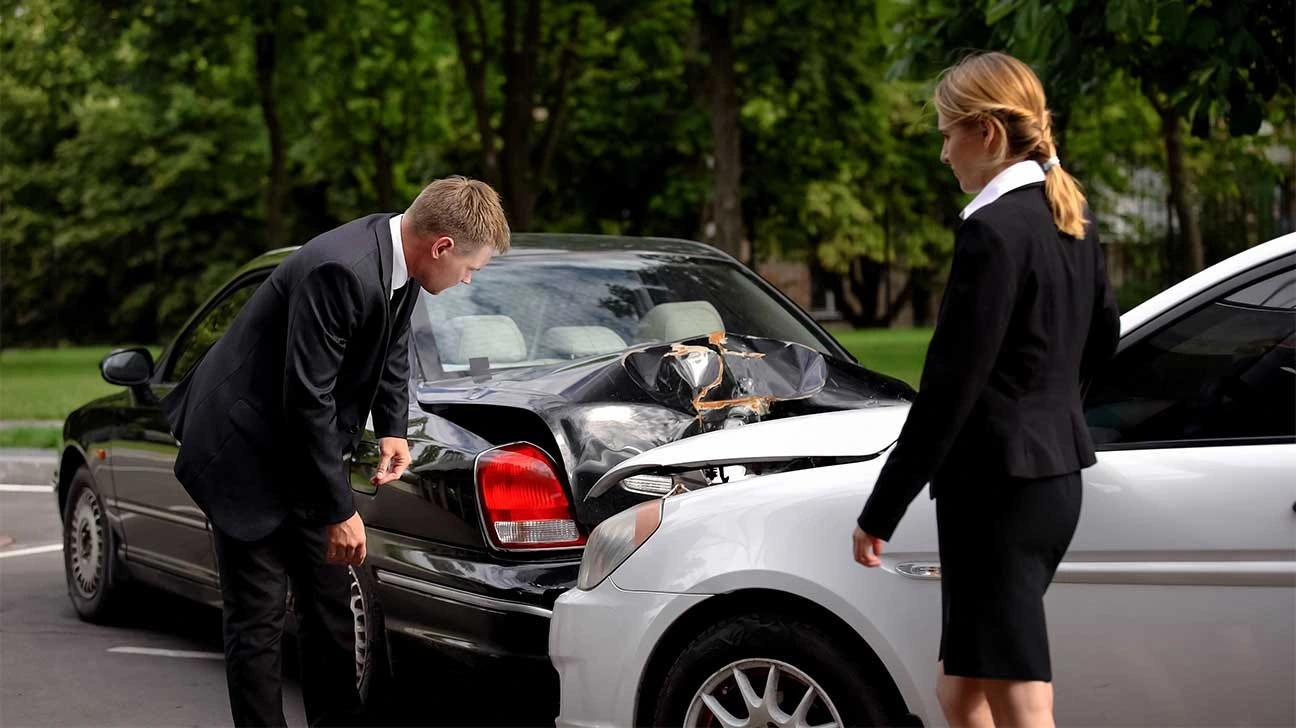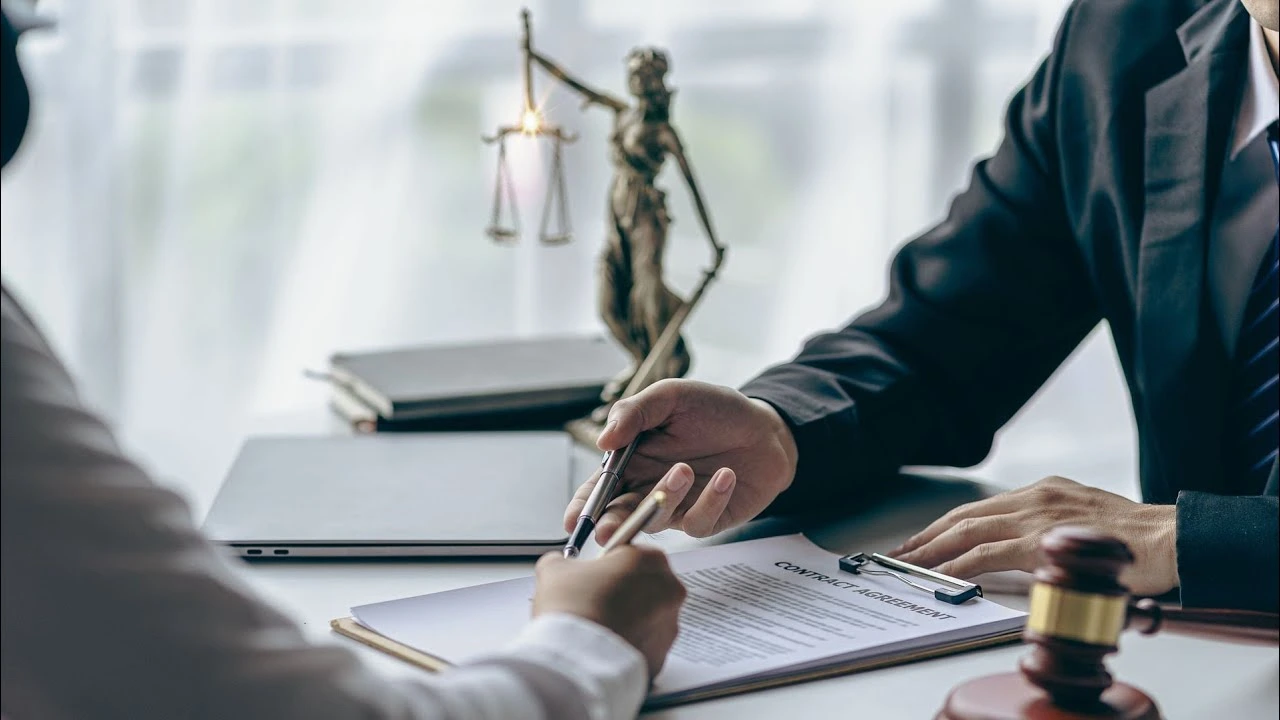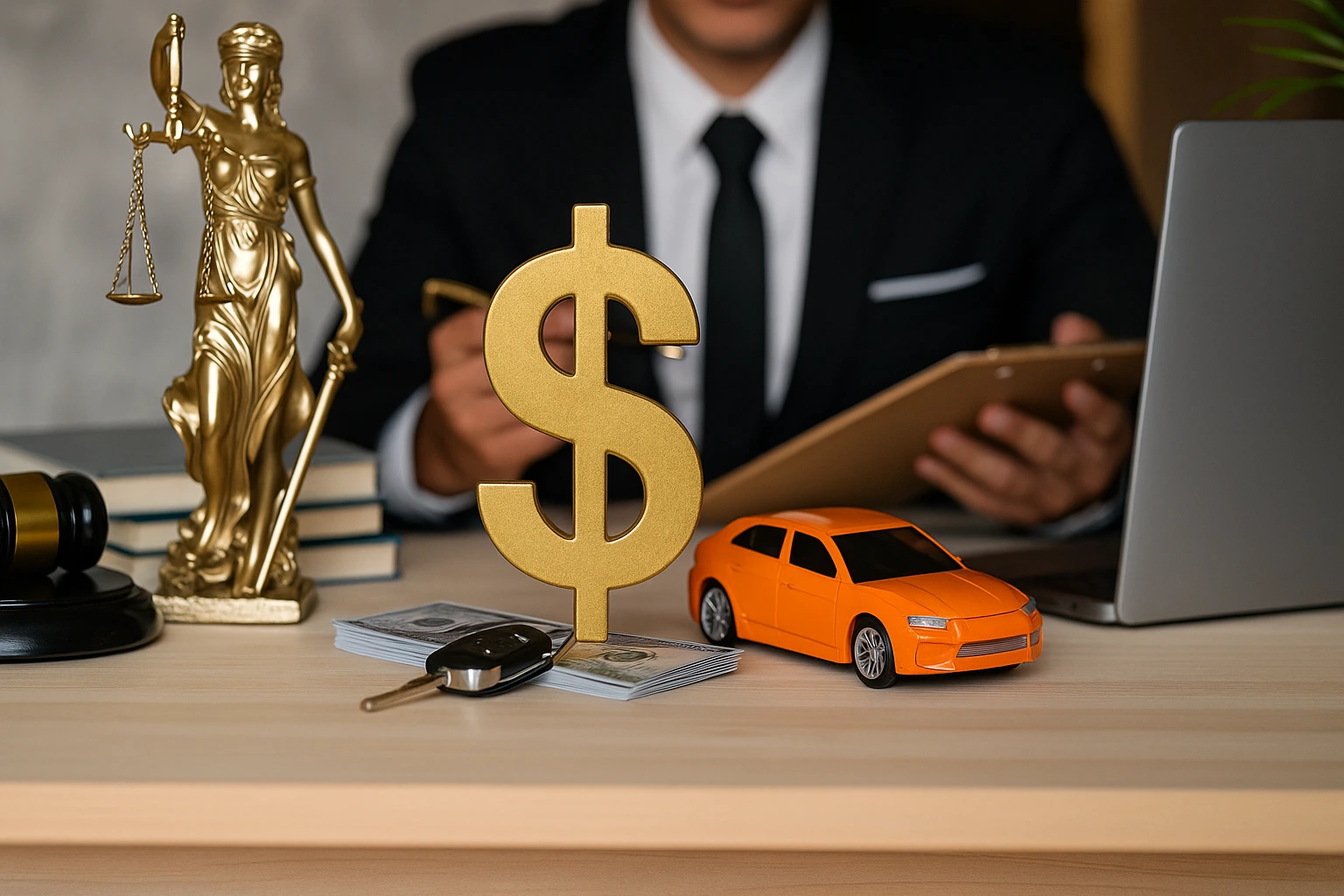After a car accident, most people focus on medical treatment and vehicle repairs. But in Virginia, there’s something just as urgent: deciding when to hire a car accident lawyer. The timing of this decision can determine whether you receive full compensation or walk away with nothing at all.
Virginia is one of the few states that follows the pure contributory negligence rule. This means that if you are found even 1% at fault for the accident, you may be barred from recovering any compensation, regardless of how serious your injuries are.
Insurance companies know this. And they often use it to pressure victims into quick settlements or deny valid claims outright.
This guide will help you understand:
- The scenarios where legal help is essential
- How Virginia’s laws uniquely affect your rights
- What a lawyer can do to protect and strengthen your case
- Why waiting too long to hire a lawyer could cost you your entire claim
Whether you’re dealing with serious injuries, disputed fault, or simply don’t trust the insurance process, this blog will help you decide when it’s time to get legal support.

Table of Contents
- 1. How Car Accident Claims Work in Virginia
- 2. Situations Where You Should Hire a Lawyer Immediately
- 3. What a Car Accident Lawyer Actually Does for You
- 4. Cost of Hiring a Car Accident Lawyer in Virginia
- 5. Signs You May Not Need a Lawyer (But Be Careful)
- 6. How Insurance Companies Try to Undermine Your Claim
- 7. Legal Deadlines to Know (Statute of Limitations)
- 8. Final Thoughts: Protect Your Claim and Your Future
- 9. FAQs About Hiring a Car Accident Lawyer in Virginia
1. How Car Accident Claims Work in Virginia
Before deciding whether or when to hire a car accident lawyer in Virginia, it’s important to understand how the claims process works in this state. Unlike no-fault states, Virginia uses a fault-based system, but with one very strict rule that sets it apart.
Fault-Based Insurance System
Virginia follows a traditional tort system, meaning the party who caused the accident (and their insurer) is financially responsible for damages. If you’re the victim, you can:
- File a claim with your own insurance company (who may then seek reimbursement from the at-fault party)
- File a third-party claim directly with the at-fault driver’s insurer
- File a lawsuit against the at-fault driver in court
The Pure Contributory Negligence Rule
This is where Virginia differs dramatically from most states. Virginia is one of only a handful of states that uses pure contributory negligence, which means:
If you’re found to be even 1% at fault, you are legally barred from recovering damages.
This applies even if the other party was 99% at fault. It’s one of the toughest negligence rules in the country and makes it very difficult to win a claim without legal representation, especially if there’s any dispute over how the crash occurred.
Who Determines Fault?
Initially, fault is determined by:
- The police report
- Statements from both drivers
- Witness accounts
- Physical evidence (photos, skid marks, traffic cameras)
- Insurance adjuster investigations
If the case goes to court, a judge or jury will decide based on presented evidence.
Because of the contributory negligence standard, insurance companies often try to shift any percentage of fault to the victim to avoid paying. A skilled attorney can challenge this strategy with evidence, legal arguments, and expert testimony.
Common Types of Compensation Available
If you’re not found at fault, you may be eligible to recover:
- Medical expenses (current and future)
- Lost wages and loss of earning potential
- Pain and suffering
- Property damage
- Wrongful death damages (if applicable)
2. Situations Where You Should Hire a Lawyer Immediately
There are certain circumstances where hiring a car accident lawyer is not just helpful, it’s essential. In these scenarios, failing to get legal representation early can directly impact your ability to recover damages or even file a claim at all.
Here’s when you should contact a lawyer without delay:
You Suffered Serious or Long-Term Injuries
- If your injuries involve surgery, rehab, or long-term care
- If you’re facing permanent disability or disfigurement
- If you’re unsure how much your future medical bills will cost
In serious cases, an attorney can work with doctors and financial experts to accurately calculate your damages and ensure you’re not underpaid.
Fault Is Being Disputed
- If the other driver denies responsibility
- If the police report contains inaccuracies
- If there’s limited evidence or conflicting witness statements
In Virginia, where even 1% fault kills your case, having a lawyer to build your defense is critical.
You Received a Lowball Settlement Offer
Insurance companies often offer a quick payout before you fully understand your injuries or your rights. A lawyer can:
- Review the offer
- Negotiate for full and fair compensation
- Prevent you from signing away your future claims
A Loved One Was Killed in the Crash
Wrongful death cases are legally complex and emotionally difficult. A lawyer helps:
- File the claim on behalf of the estate or family
- Calculate both financial and emotional losses
- Handle legal deadlines and procedures while you focus on healing
There Were Multiple Vehicles Involved
Multi-vehicle crashes raise questions about:
- Chain reactions
- Shared fault
- Comparative evidence from several drivers and insurers
An attorney can determine who is truly liable and hold all responsible parties accountable.
The Other Driver Was Uninsured or Underinsured
In Virginia, some drivers carry minimal coverage, or none at all. A lawyer can:
- Help you file an uninsured motorist (UM) or underinsured motorist (UIM) claim
- Deal with your own insurer’s denials or delays
- Identify other recovery options, such as third-party liability

3. What a Car Accident Lawyer Actually Does for You
Many people assume lawyers only get involved when lawsuits are filed. But in car accident cases, a good attorney provides value from day one, even before formal legal action begins.
Here’s what a lawyer does to protect your interests:
Investigates the Crash and Preserves Evidence
- Reviews police reports, medical records, and photographs
- Interviews witnesses
- Retrieves surveillance footage, dashcam evidence, and phone records
- Reconstructs the accident, if needed, using experts
Builds a Strong Liability Case Under Virginia Law
- Analyzes contributory negligence arguments
- Counters the insurer’s attempts to assign fault to you
- Applies relevant state traffic and insurance statutes
This is especially important in Virginia, where proving 100% fault on the other party is the only way to win.
Calculates and Proves All Damages
- Medical expenses (past, present, future)
- Lost income and reduced earning potential
- Pain and suffering
- Emotional distress and loss of enjoyment
- Property damage
Lawyers also handle complex medical liens and insurance subrogation so you’re not surprised with bills after your case is settled.
Handles All Communications with Insurance Companies
- Prevents you from making statements that could hurt your claim
- Pushes back against stalling or bad-faith tactics
- Negotiates aggressively for the settlement you deserve
Prepares Your Case for Trial if Necessary
Most cases settle, but if yours doesn’t, a lawyer will:
- File the lawsuit on time
- Prepare evidence and witness lists
- Represent you in court, mediation, or arbitration
4. Cost of Hiring a Car Accident Lawyer in Virginia
One of the most common concerns after a crash is, “Can I even afford a lawyer?” The good news is that most car accident lawyers in Virginia work on a contingency fee basis, meaning there’s no upfront cost and no payment unless they recover money for you.
What Is a Contingency Fee?
- You pay nothing out of pocket to start
- The lawyer takes a percentage (typically 33%-40%) from your final settlement or court award
- If your lawyer doesn’t win your case, you owe nothing in fees
This structure allows injury victims to access experienced legal help regardless of income or financial stress after a crash.
Why It’s Still Worth It Financially
Even after legal fees are deducted, most people end up with more money when they hire a lawyer. According to studies, personal injury claimants represented by attorneys receive settlements that are 3 to 4 times higher on average than those who go it alone.
In short: A lawyer not only costs you nothing up front, but often helps you recover far more than you would on your own.
5. Signs You May Not Need a Lawyer (But Be Careful)
Not every car accident requires legal representation. In some minor, clear-cut cases, you may be able to handle the claim yourself, especially if:
a. There Were No Injuries
If the crash caused only minor property damage and no one was hurt, you might not need a lawyer. Most insurers can resolve these claims quickly with documentation and receipts.
b. The Other Driver Fully Admits Fault
If the at-fault driver accepts 100% responsibility, and their insurance company is cooperating, you might manage the claim without legal help, as long as you stay cautious.
c. The Medical Costs Are Minimal and Clear
If you had one urgent care visit, no ongoing treatment, and your bills are small and well-documented, it may not be necessary to involve an attorney.
Important Warning: Many Cases Start Small and Get Worse
Even “minor” injuries like whiplash or back pain can worsen days or weeks later. If you settle early, you lose the right to ask for more money later.
Also, remember that Virginia’s contributory negligence rule is unforgiving. If the insurer can argue you’re even slightly at fault, they may deny your claim entirely, even in what looks like a simple case.
When in doubt, a free consultation with a lawyer can help you confirm whether you need representation, without obligation.

6. How Insurance Companies Try to Undermine Your Claim
Even when fault seems clear, insurance companies don’t pay easily, especially under Virginia’s pure contributory negligence rule. Their goal is to minimize what they owe, and they use subtle tactics to do it.
Here’s how they work against your claim:
Asking for a Recorded Statement
They may call shortly after the crash and sound helpful, but they’re trained to get you on record saying something that suggests partial fault or downplays your injury. Even innocent phrases like “I didn’t see them” or “I feel fine” can hurt your claim.
Tip: You’re not required to give a recorded statement to the other driver’s insurer. Talk to a lawyer first.
Delaying the Process
Insurers may:
- Stall investigations
- “Lose” paperwork
- Take weeks to respond to basic questions
They know the longer you wait, especially without legal help, the more likely you are to accept a low offer out of frustration or financial pressure.
Offering a Quick but Inadequate Settlement
Some insurers offer money fast before you understand the full extent of your injuries. They want you to sign a release that prevents you from claiming more, even if medical issues appear later.
A lawyer can calculate your real damages, including future costs, so you don’t accept too little too soon.
Using Contributory Negligence Against You
Virginia’s strict rule means even 1% fault bars recovery. Insurers know this, and they’ll look for any excuse to pin partial blame on you, even something as minor as:
- Not braking quickly enough
- Being slightly over the speed limit
- Saying something unclear at the scene
An experienced attorney knows how to push back and protect your claim from unfair blame.
7. Legal Deadlines to Know (Statute of Limitations)
In Virginia, the clock starts ticking the day your accident happens. If you miss the legal deadline to file, you lose your right to sue, forever.
Here are the key deadlines:
a. Personal Injury Claims
You have 2 years from the date of the accident to file a lawsuit for injuries.
b. Property Damage Claims
You have 5 years to recover compensation for vehicle or property damage.
c. Wrongful Death Cases
If a loved one died from accident injuries, you have 2 years from the date of death to file a wrongful death claim.
Why You Shouldn’t Wait
Even if you’re within the deadline:
- Evidence fades (surveillance footage is erased, witnesses forget)
- Insurers delay, hoping you’ll run out of time
- Negotiating from behind weakens your position
Getting legal help early improves your leverage and gives your lawyer time to build the strongest possible case.
8. Final Thoughts: Protect Your Claim and Your Future
In Virginia, hiring a car accident lawyer isn’t just about getting legal advice, it’s about protecting your right to recover anything at all. With one of the strictest fault rules in the country, even a minor misstep can leave you with unpaid bills, long-term injuries, and no legal recourse.
If your accident involved injuries, disputed fault, aggressive insurance tactics, or any uncertainty at all, don’t leave your future to chance.
Talk to a Virginia car accident lawyer early. Let them deal with the legal pressure while you focus on healing.
9. FAQs About Hiring a Car Accident Lawyer in Virginia
Do I really need a lawyer for a car accident in Virginia?
If there are injuries, fault is unclear, or the insurance company isn’t treating you fairly, yes. Virginia’s contributory negligence rule makes even “simple” cases risky if you go it alone.
What if I can’t afford an attorney right now?
Most car accident lawyers work on a contingency fee basis, meaning you pay nothing upfront. You only pay if they win or settle your case.
When should I hire a lawyer after an accident?
As soon as possible, ideally before speaking to any insurance adjuster. Early legal help protects evidence, prevents mistakes, and strengthens your case from day one.
Can I handle my case without a lawyer if it’s minor?
Possibly. If there are no injuries, no dispute about fault, and minimal property damage, you may not need representation. But always be cautious, small injuries can turn serious later.
What if I was partially at fault?
In Virginia, even 1% fault bars you from recovery. This is why insurance companies try hard to assign blame. A lawyer can help fight this and present your side effectively.
How long do I have to file a claim?
- 2 years for injury claims
- 5 years for property damage
- 2 years from date of death for wrongful death cases
Don’t wait. The sooner you act, the stronger your position.
Latest Posts
Who Covers Hospital Bills After a Virginia Truck Crash?
A Virginia truck crash can leave you facing devastating injuries and overwhelming medical bills. Between emergency room visits, surgeries, and follow-up...
Who Covers Hospital Bills After a Virginia Truck Crash?
How Much Does a Car Accident Lawyer Cost in Virginia?
One of the first questions many accident victims ask is, "How much does a car accident lawyer cost in Virginia?" The answer matters, not just for your...
